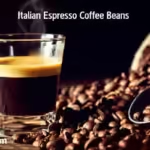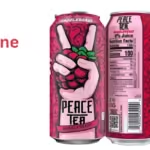Naked Juice can seem healthy because it’s made from fruits and sometimes vegetables. However, it’s important to consider that these juices are often high in natural sugars and calories due to the fruit concentration in each serving, and they lack the fiber found in whole fruits, which helps moderate blood sugar levels.
While Naked Juice provides vitamins and antioxidants, drinking it in moderation is key, especially for those monitoring sugar intake. For the healthiest option, whole fruits and vegetables are preferable because they provide fiber and the same nutrients with fewer calories and less sugar impact.
If you want to read more about Naked Juice in detail, continue reading the article.Is Naked Juice Healthy? Uncovering the Pros and Cons
Introduction
As a well-known brand in the beverage industry, Naked Juice has always caught my attention. With their variety of fruit and vegetable juices and smoothies, they’ve marketed their products as healthy and nutritious.
However, recent controversies have raised some questions about these claims. In this blog section, I aim to investigate and uncover the reality behind their health claims.

During my journey through the world of health and nutrition, I’ve always been intrigued by the promises made by beverage companies. Naked Juice, with its vibrant packaging and alluring flavors, stood out. But are these drinks as beneficial as they claim? Let’s dive deeper.
The Popularity Of Naked Juice
Naked Juice has been a familiar name since 1983 when Jimmy Rosenberg and David Bleeden transformed their demand for fresh juice into a small venture. The popularity of their concoctions soared, leading to a pivotal moment in 1988 when the founders sold their brainchild to Chiquita. This was just the beginning.
The big break came in 2006, as PepsiCo acquired Naked Juice, opening doors to wider distribution and marketing opportunities.
Their products, marketed as brimming with health, are packed with fruits and vegetables. In their pursuit of innovation, they introduced a new line, like pure pomegranate juice and smoothies with added probiotics.
The packaging is designed to showcase the exact amount and types of produce in each bottle, emphasizing their commitment to providing nutritious options. As someone who has navigated the world of health drinks, this transparency in packaging has always intrigued me.
The brand’s journey from a modest start to a household name reflects its resonance with health-conscious consumers
Nutritional Content Of Naked Juice
Naked Juice, a popular brand known for its fruit and vegetable smoothies and juices, often poses as a healthy choice. However, there have been concerns about its health claims. Taking a closer look at its nutritional content, it becomes evident that these drinks may not always align with everyone’s health goals.
As a nutrition enthusiast, I’ve learned that while these beverages are a convenient source of vitamins, their sugar content and lack of fiber compared to whole fruits can be a drawback for some.
High Fruit And Vegetable Content
One of the positive aspects of Naked Juice is its high fruit and vegetable content, making these drinks predominantly based on whole food ingredients. This means they are packed with essential nutrients like potassium and vitamin C.
For example, their Green Machine flavor is a blend of spinach, kiwi, and wheatgrass, offering a nutrient-rich option for those seeking to increase their intake of fruits and vegetables in a convenient form.
Sugar and Calorie Content in Naked Juice
When it comes to Naked Juice, it’s crucial to compare the calorie content of these beverages against your daily nutritional requirements, especially if you’re managing a balanced diet. While these beverages boast a high nutrient profile, they also consist of high calories, which can impact people’s focus on weight management.
The considerable amount of natural and added sugars in Naked Juice, though offering essential vitamins and minerals, can be a concern for the body. Consuming them in excess can cause serious health implications, including weight gain, insulin resistance, and metabolic disorders.

As someone who has always been conscious about food and beverage choices, I’ve found it important to read labels carefully. Naked Juice, despite its healthful appearance, can contribute significantly to daily sugar and calorie intake. Understanding this balance is key to maintaining a healthy lifestyle, and it’s vital to consider these factors when incorporating such beverages into your diet.
Lawsuits Against Naked Juice
Over the years, Naked Juice, a popular brand of fruit juices and smoothies, has faced several legal challenges regarding its health claims. These lawsuits have questioned the accuracy of its labeling and the portrayal of the product’s nutritional value.
A notable case was filed by the Center for Science in the Public Interest (CSPI), representing consumers who felt misled by the brand’s health assertions. This legal scrutiny highlights the importance of transparent and honest marketing, especially in the health food sector.
Is Naked Juice Healthy?
When choosing healthy drinks, many people often turn to Naked Juice, drawn by its reputation as a fruit-based beverage. However, important factors must be considered before assuming it’s wholly nutritious. The content of sugar and calories, along with the absence of fiber compared to whole fruits, plays a crucial role in determining its health value.
Comparisons To Soda
When examining the sugar content of Naked Juice, it’s surprising to find it often on par with popular sodas. For instance, the Orange Mango drink packs a whopping 51 grams of sugar per bottle, and the Tropical Guava drink follows closely with 50 grams.

While fruit juice does offer some health benefits, the high sugar intake associated with these drinks can lead to an increased risk of obesity, heart disease, and type 2 diabetes.
Unlike whole fruits, fruit juices have their fiber removed during juicing, a critical component for weight management, regulating appetite, and food intake.
This absence of fiber, which is linked to a reduced risk of metabolic syndrome, can increase blood sugar and insulin levels, while the lack of fiber makes them less filling, potentially leading to higher calorie intake.
For a truly healthful and nutritious diet, it’s essential to prioritize eating whole fruits and vegetables. They offer more fiber and typically less sugar, making them a healthier choice.
While Naked Juice can be enjoyed in moderation, its high sugar and low fiber content should be a consideration for anyone looking to maintain a well-rounded diet. This insight has led me to balance my diet with more whole fruits and less fruit juice.
Nutrition facts
Examining Naked Juice, a brand celebrated for its fruit and vegetable smoothies in various flavors like broccoli, kiwi, and apple, the Nutrition Facts of a typical 15.2-ounce serving of this beverage reveal a detailed story.
As someone who scrutinizes nutrition labels, I’ve observed that while these juices offer a convenient way to consume a range of fruits and vegetables, the calorie and sugar content per serving should be considered, especially for those monitoring their intake.
The Nutrition Facts of a 15.2-ounce serving of Naked Juice beverage is:
- Fiber- 1.3 grams
- Protein- 4 grams
- Fat- 0 grams
- Vitamin C- 50% of the daily value (DV)
- Vitamin A, B2, and B6-25% of the daily value (DV)
- Calories- 270
- Carbs– 63 grams
- Sugar- 53 grams
types of naked juice
- Indulgent proteins (vanilla and chocolate)
- Naked plus
- Naked juice machines
Benefits of naked juice
The company claims that its beverage offers more nutrition compared to ordinary soft drinks and sodas and has the following benefits:
- Rich in essential vitamins and minerals
- Rich in antioxidants
- Available in several flavors
- No synthetic ingredients or additives
- No synthetic flavors
Consumer Perspectives
Public Perception Of Naked Juice
Naked Juice was once marketed as a healthier alternative to other sugary beverages, with its colorful packaging and emphasis on real fruits and vegetables. However, recent revelations about its high sugar content and questionable additives have significantly shifted the public perception.
The Center for Science in the Public Interest (CSPI) even sued PepsiCo, the company behind Naked Juice, for misleading health claims and deceptive marketing tactics.
This lawsuit brought to light the concerns many health-conscious consumers had about the true nutritional value of Naked Juice. It became apparent that these drinks are essentially similar to soda, with their natural sugars being high in calories and their notable lack of fiber, unlike whole fruits.
This shift in perception has raised concerns about the potential health risks of consuming excessive amounts of sugar, especially considering its impact on weight gain, heart disease, and type 2 diabetes.
As a nutrition enthusiast, I’ve witnessed this change in attitude first-hand. Consumers are now more aware and cautious, scrutinizing labels more closely than ever before, to truly understand what they are consuming. This heightened awareness emphasizes the importance of transparency in the food and beverage industry.
Impact On Consumer Choices
The controversy surrounding Naked Juice has prompted many consumers to reevaluate their beverage choices, becoming more cautious of hidden sugars in seemingly healthy drinks. Increasingly, people are beginning to opt for alternatives that offer better nutritional value.
In comparison to other fruit juice brands, questions arise about what these products truly offer in terms of health benefits, especially since they are low in fiber when compared to whole fruits. Experts often recommend consuming options that provide more fiber and are more filling.
This shift in public perception has transformed the once-perceived healthy drink into being seen as just another sugary beverage. Consumers are now making more informed choices about their preferences, considering not just the sugar content but the overall nutritional value of what they drink.
From my personal experience in the health and wellness community, I’ve seen a tangible shift. People are no longer taking marketing claims at face value but are digging deeper into the actual contents of their beverages. This change highlights a growing trend of health awareness and the importance of being an informed consumer in today’s complex food landscape.
Conclusion: Is Naked Juice Healthy? Unveiling the Naked Truth.
While Naked Juice drinks do not contain added sugars, preservatives, or artificial flavors, they are still beverages that are high in calories and sugar content. Although they offer some antioxidants and various vitamins and minerals, their low fiber content can contribute to potential weight gain if consumed regularly.
4
Naked Juice Review | Is Naked Juice Healthy? | General Wellness
FAQ: Is Naked Juice Healthy? – Unveiling the Truth Behind Naked Juice’s Health Claims
Q: What is Naked Juice?
Naked Juice is a popular beverage brand that produces a range of fruit and vegetable juices and smoothies, often marketed as healthy and nutritious options.
Q: Is Naked Juice healthy?
When examining the ingredients and nutritional content of Naked Juice, it’s a mixed bag. While it contains fruits and vegetables and is packed with vitamins, it also lacks fiber and often has high levels of natural sugars. This complexity makes it less straightforward to label it as a universally healthy choice.
Q: Does Naked Juice have any nutritional benefits?
Naked Juice does offer some nutritional benefits as it is mainly made from fruits and vegetables. However, it’s important to note that while it provides some nutrients, these are significantly reduced compared to consuming whole fruits and vegetables. Additionally, its high sugar content can often outweigh these benefits.
Q: What should I consider before consuming Naked Juice?
Before consuming Naked Juice, it’s wise to consider its overall sugar content and lack of fiber, as well as the processing methods used in its production. Often, it’s best to opt for whole fruits and vegetables to ensure you receive the full range of nutrients.
Q: Are there healthier alternatives to Naked Juice?
Yes, there are healthier alternatives to Naked Juice. Instead of relying on bottled juices, making your fresh juices at home using whole fruits and vegetables allows you to have full control over the ingredients, ensuring a better balance of nutrients without the added sugars.
Q: Can Naked Juice be part of a balanced diet?
While Naked Juice can be consumed occasionally as a treat, it should not be relied upon as a primary source of fruits and vegetables. For a balanced diet, it’s better to prioritize whole foods to ensure optimal health and nutrient intake.







Your point of view caught my eye and was very interesting. Thanks. I have a question for you.